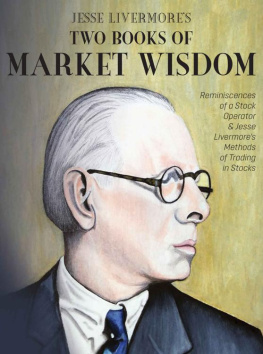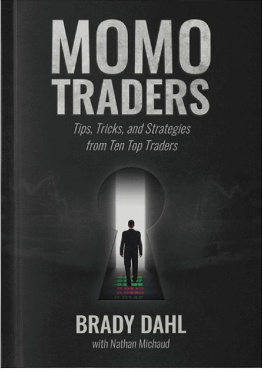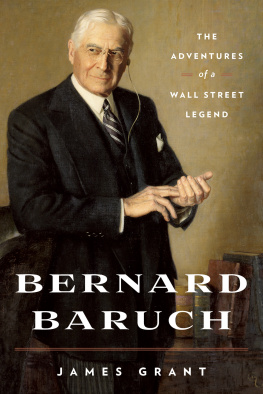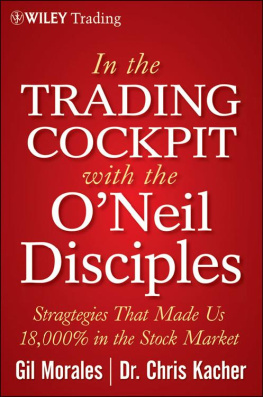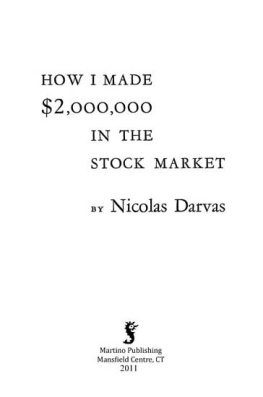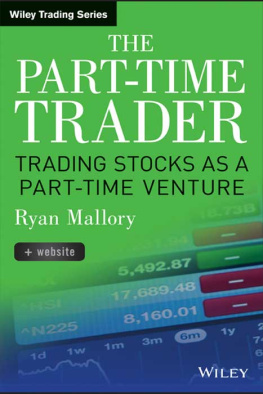Boik - Lessons from the Greatest Stock Traders of All Time
Here you can read online Boik - Lessons from the Greatest Stock Traders of All Time full text of the book (entire story) in english for free. Download pdf and epub, get meaning, cover and reviews about this ebook. City: New York, year: 2004, publisher: McGraw-Hill Education, genre: Business. Description of the work, (preface) as well as reviews are available. Best literature library LitArk.com created for fans of good reading and offers a wide selection of genres:
Romance novel
Science fiction
Adventure
Detective
Science
History
Home and family
Prose
Art
Politics
Computer
Non-fiction
Religion
Business
Children
Humor
Choose a favorite category and find really read worthwhile books. Enjoy immersion in the world of imagination, feel the emotions of the characters or learn something new for yourself, make an fascinating discovery.

Lessons from the Greatest Stock Traders of All Time: summary, description and annotation
We offer to read an annotation, description, summary or preface (depends on what the author of the book "Lessons from the Greatest Stock Traders of All Time" wrote himself). If you haven't found the necessary information about the book — write in the comments, we will try to find it.
Boik: author's other books
Who wrote Lessons from the Greatest Stock Traders of All Time? Find out the surname, the name of the author of the book and a list of all author's works by series.
Lessons from the Greatest Stock Traders of All Time — read online for free the complete book (whole text) full work
Below is the text of the book, divided by pages. System saving the place of the last page read, allows you to conveniently read the book "Lessons from the Greatest Stock Traders of All Time" online for free, without having to search again every time where you left off. Put a bookmark, and you can go to the page where you finished reading at any time.
Font size:
Interval:
Bookmark:


Copyright 2004 by The McGraw-Hill Companies, Inc. All rights reserved. Printed in the United States of America. Except as permitted under the United States Copyright Act of 1976, no part of this publication may be reproduced or distributed in any form or by any means, or stored in a database or retrieval system, without the prior written permission of the publisher.
ISBN: 978-0-07-150564-2
MHID: 0-07-150564-4
The material in this eBook also appears in the print version of this title: ISBN: 978-0-07-143788-2, MHID: 0-07-143788-6.
All trademarks are trademarks of their respective owners. Rather than put a trademark symbol after every occurrence of a trademarked name, we use names in an editorial fashion only, and to the benefit of the trademark owner, with no intention of infringement of the trademark. Where such designations appear in this book, they have been printed with initial caps.
McGraw-Hill eBooks are available at special quantity discounts to use as premiums and sales promotions, or for use in corporate training programs. To contact a representative please e-mail us at bulksales@mcgraw-hill.com.
This publication is designed to provide accurate and authoritative information in regard to the subject matter covered. It is sold with the understanding that neither the author nor the publisher is engaged in rendering legal, accounting, or other professional service. If legal advice or other expert assistance is required, the services of a competent professional person should be sought.
From a Declaration of Principles jointly adopted by Committee of the American Bar Association and a Committee of Publishers.
TERMS OF USE
This is a copyrighted work and The McGraw-Hill Companies, Inc. (McGraw-Hill) and its licensors reserve all rights in and to the work. Use of this work is subject to these terms. Except as permitted under the Copyright Act of 1976 and the right to store and retrieve one copy of the work, you may not decompile, disassemble, reverse engineer, reproduce, modify, create derivative works based upon, transmit, distribute, disseminate, sell, publish or sublicense the work or any part of it without McGraw-Hills prior consent. You may use the work for your own noncommercial and personal use; any other use of the work is strictly prohibited. Your right to use the work may be terminated if you fail to comply with these terms.
THE WORK IS PROVIDED AS IS. McGRAW-HILL AND ITS LICENSORS MAKE NO GUARANTEES OR WARRANTIES AS TO THE ACCURACY, ADEQUACY OR COMPLETENESS OF OR RESULTS TO BE OBTAINED FROM USING THE WORK, INCLUDING ANY INFORMATION THAT CAN BE ACCESSED THROUGH THE WORK VIA HYPERLINK OR OTHERWISE, AND EXPRESSLY DISCLAIM ANY WARRANTY, EXPRESS OR IMPLIED, INCLUDING BUT NOT LIMITED TO IMPLIED WARRANTIES OF MERCHANTABILITY OR FITNESS FOR A PARTICULAR PURPOSE. McGraw-Hill and its licensors do not warrant or guarantee that the functions contained in the work will meet your requirements or that its operation will be uninterrupted or error free. Neither McGraw-Hill nor its licensors shall be liable to you or anyone else for any inaccuracy, error or omission, regardless of cause, in the work or for any damages resulting there from. McGraw-Hill has no responsibility for the content of any information accessed through the work. Under no circumstances shall McGraw-Hill and/or its licensors be liable for any indirect, incidental, special, punitive, consequential or similar damages that result from the use of or inability to use the work, even if any of them has been advised of the possibility of such damages. This limitation of liability shall apply to any claim or cause whatsoever whether such claim or cause arises in contract, tort or otherwise.
Its not the thinking that makes the money; its the sitting.
even being right three or four times out often should yield a person a fortune if he has the sense to cut his losses quickly
What everybody else knows is not worth knowing.
As for good stocks and bad stocks, there were no such things; there were only stocks increasing in price and stocks declining in price.
with persistence and hard work anything is possible. You can do it, and your own determination to succeed is the most important element.
To my wife, Gina, for her understanding and support. To my five-year-old daughter, Daniella. It was a joy to have you by my side, and I thank you for allowing me to share the computer (mine) with you throughout this project.
To a few great friends and my parents for providing continued encouragement.
To the professional staff at McGraw-Hill, especially my fine editor Kelli Christiansen.
Finally, to Mr. William ONeil. This book would never have been written without the accomplishments he has achieved, especially his dedicated efforts to bring relevant, fact-based, quality market information to the individual investor.
Lessons from the Greatest Stock Traders of All Time is about incredible achievements. It profiles five individuals who attained great levels of success in one of the most difficult endeavorstrading stocks. Although many people make substantial profits and attain some success trading stocks (while most do not), the people described in this book are standout achievers.
They are the greatest because they all achieved (and one is still achieving) enormous success across decades. They paved new ways in stock market success and have stood the test of time. And when the test of time involves the stock market, that makes the achievement that much more impressive.
Who are these people and how did they get to be distinguished as the greatest? They are all Wall Street legends, and each one published at least one book describing his successful trading strategies. Here is a preview.
Jesse LivermoreThe reclusive, private genius whose revolutionary trading strategies are still being used today. Livermore attained incredible wealth and gave it back many times, eventually falling victim to his own personal problems and severe depression.
Bernard BaruchThe intelligent, sophisticated financier whose trading success earned him great riches and entry into successful financial dealings, and then into public service with the nations highest levels of power.
Gerald M. LoebThe financial writer, stockbroker, and skittish trader who made millions for more than half a century, battling the market by staying disciplined to his strict trading rules.
Nicolas DarvasThe outsider whose almost accidental initial first success in stocks led him on a quest of sheer determination to succeed in stock trading. After many years of trial and error, perseverance never wavering, his efforts finally paid off in millions and landed him a feature story in Time magazine.
William J. ONeilThe factual, hard-working researcher whose never-ending, detailed study and disciplined trading rules led to fortunes in stock trading. Then, by using his trading profits, he launched successful investment research information businesses serving both professional and individual investors.
Stock trading attracts many people because its easy to try, and many view it as an easy and quick way to riches. But as the majority learn, most the hard way, its not as easy at it seems. The stock market is an interesting display of expectations and emotions. Its by looking under the surface and past the daily minor market fluctuations, delving into the details, that these leaders studied and discovered the methods that really worked. This required intense observation and study to succeed at the highest levels, just as any other vocation requires the same attention and hard work to attain great success. This, though, is also where most people fail and do not give adequate attention and effort. As these great traders observed through experience, the stock market is not obvious; it is designed to fool most of the people most of the time.
Next pageFont size:
Interval:
Bookmark:
Similar books «Lessons from the Greatest Stock Traders of All Time»
Look at similar books to Lessons from the Greatest Stock Traders of All Time. We have selected literature similar in name and meaning in the hope of providing readers with more options to find new, interesting, not yet read works.
Discussion, reviews of the book Lessons from the Greatest Stock Traders of All Time and just readers' own opinions. Leave your comments, write what you think about the work, its meaning or the main characters. Specify what exactly you liked and what you didn't like, and why you think so.

